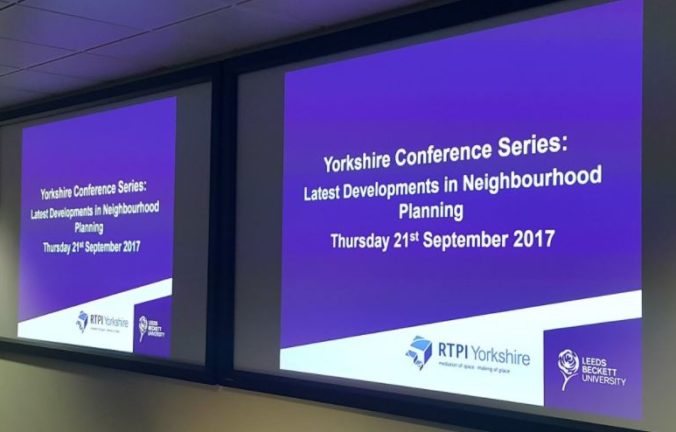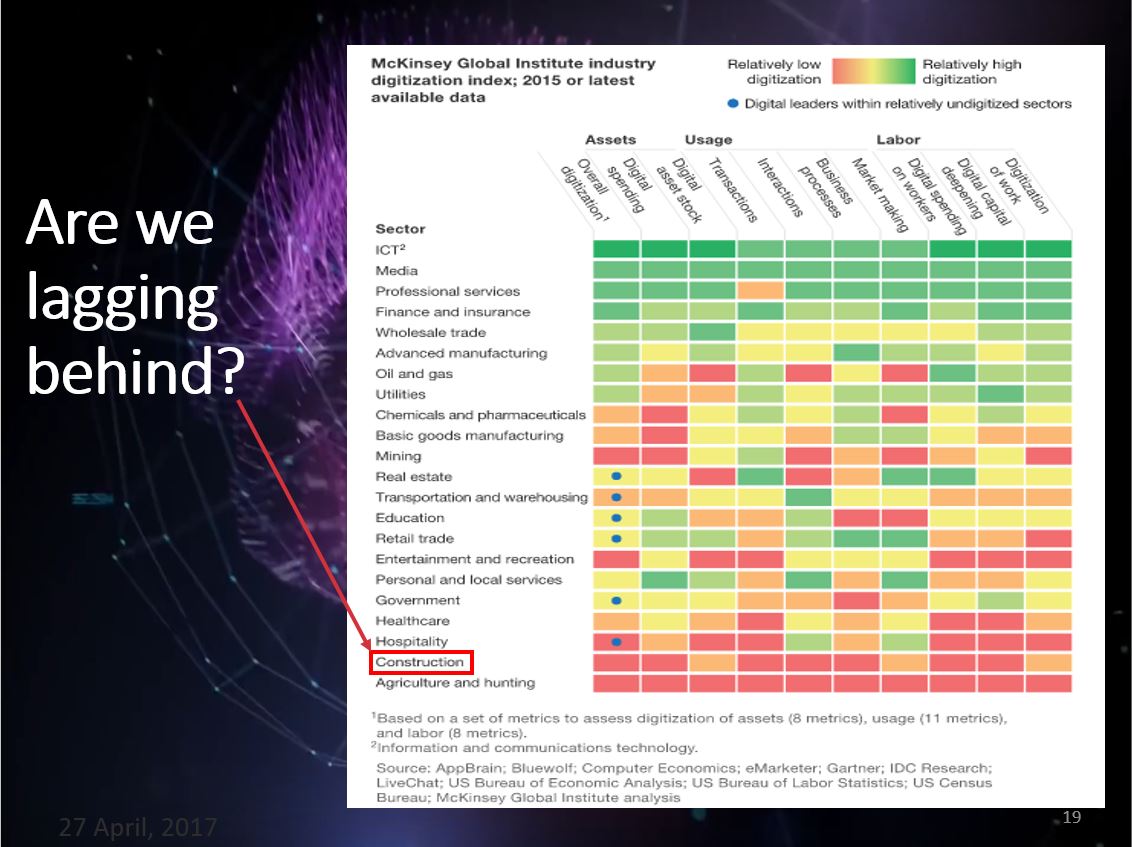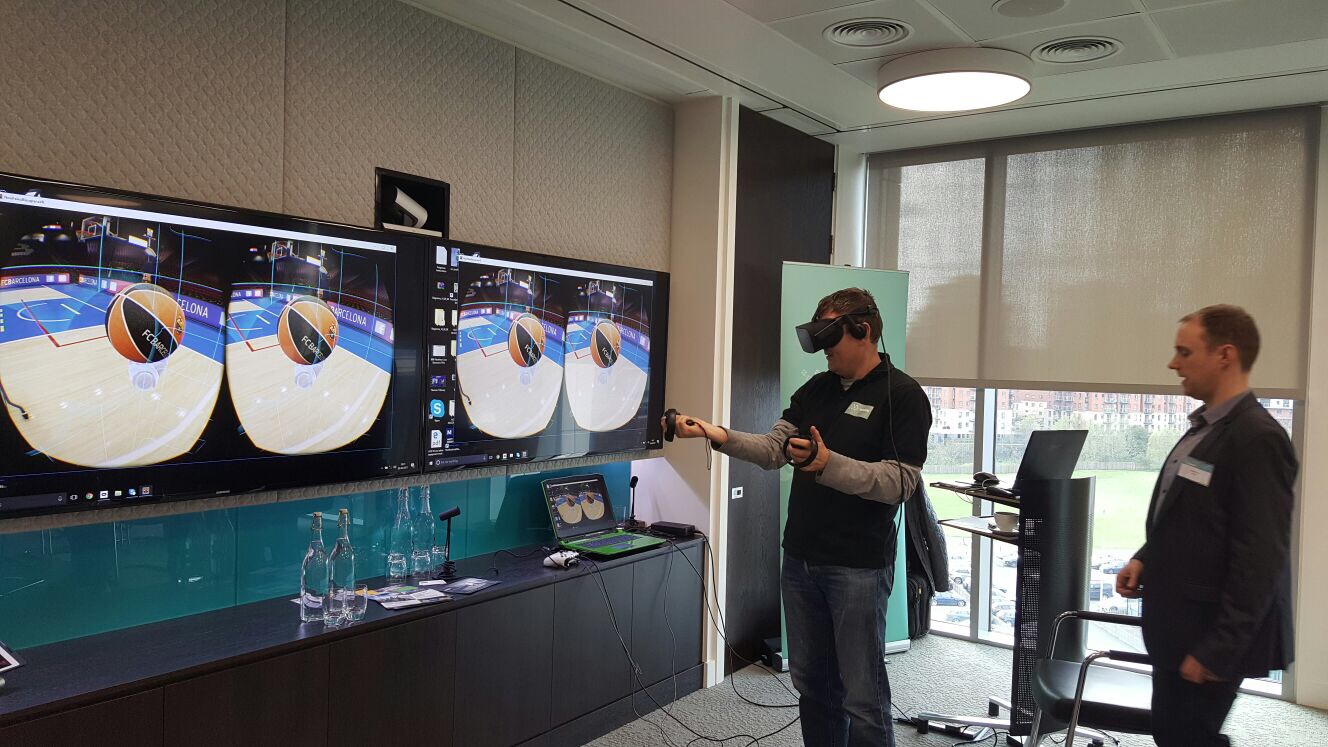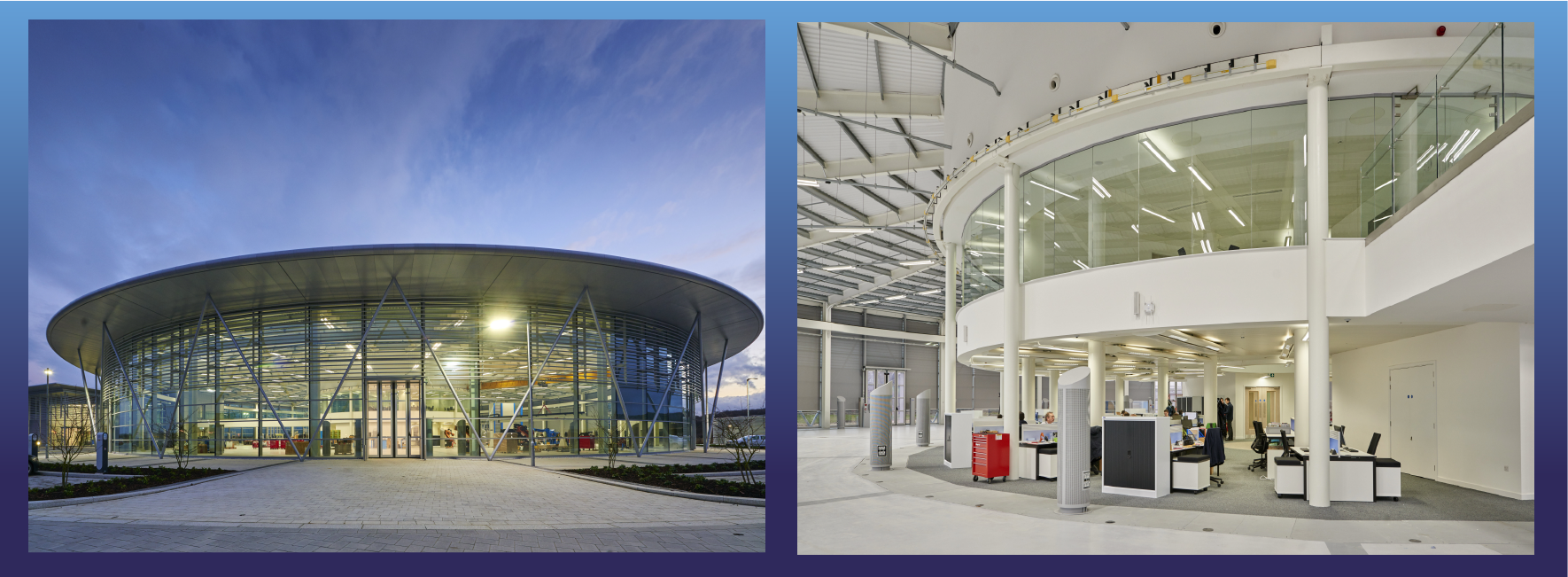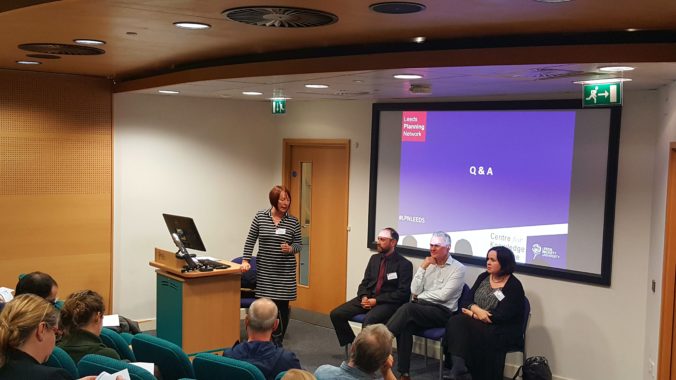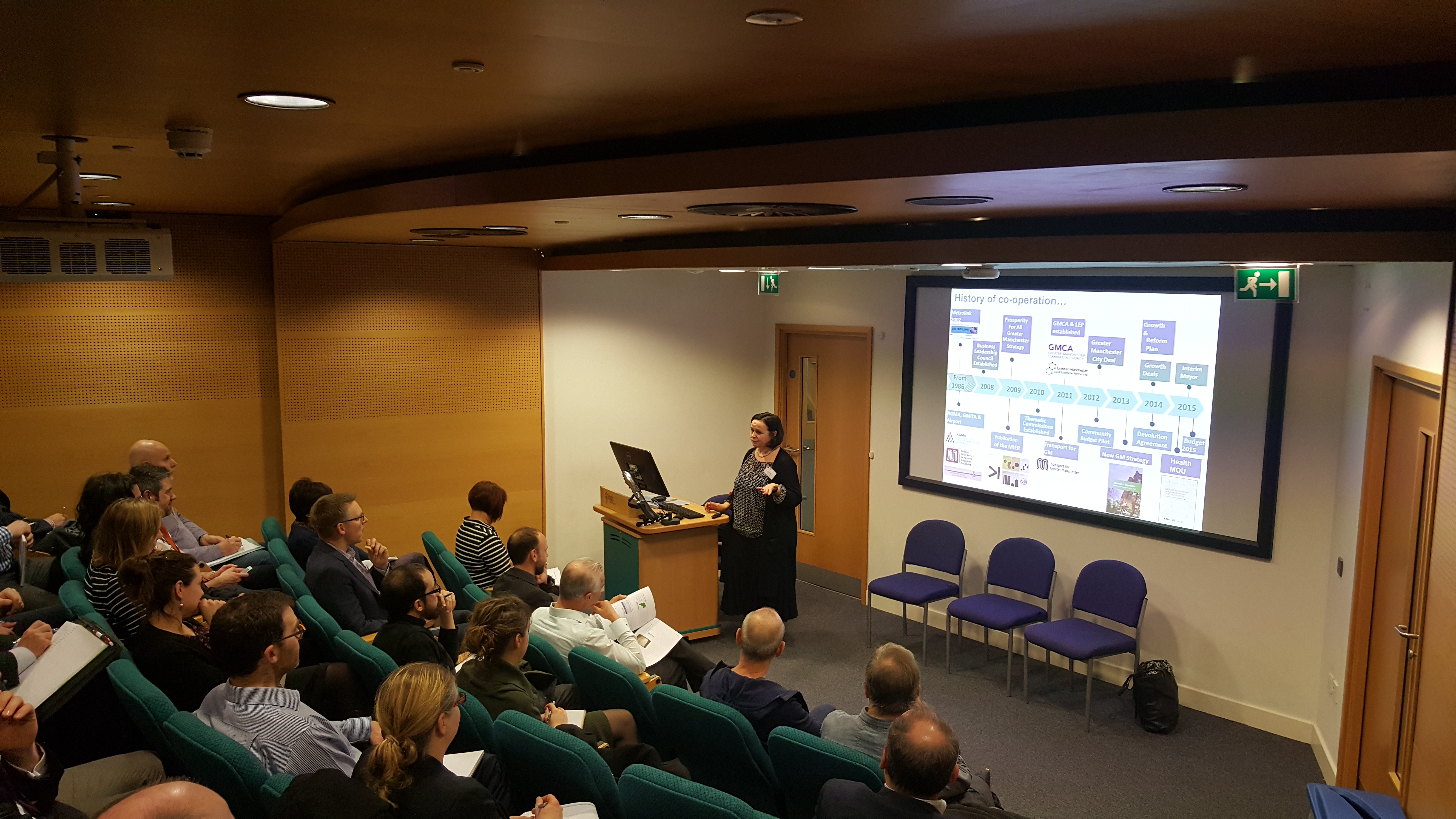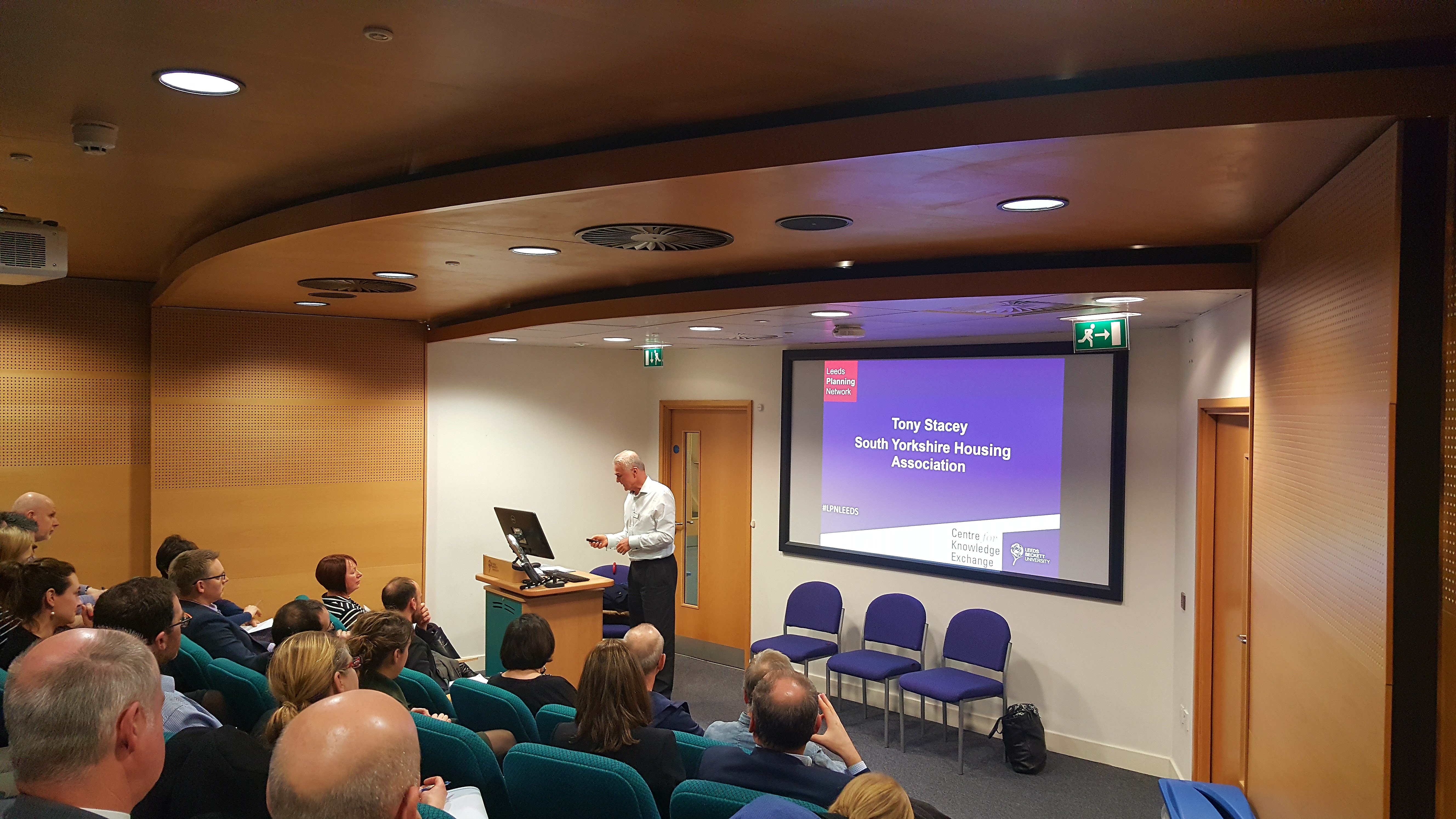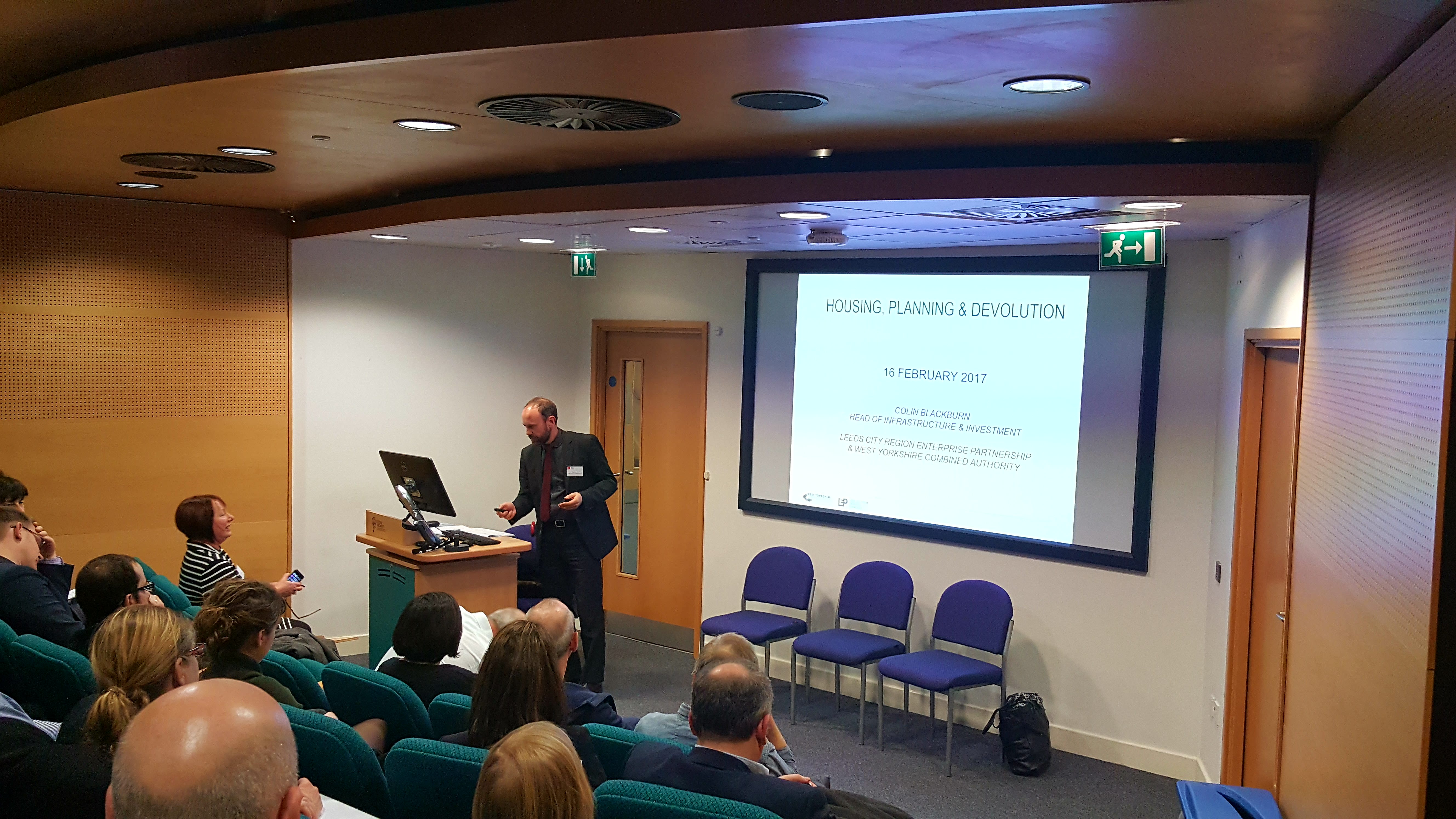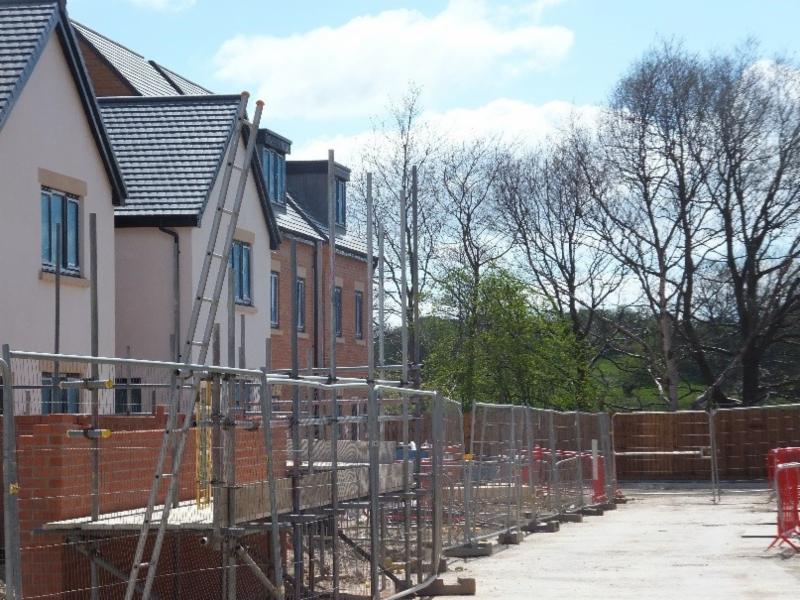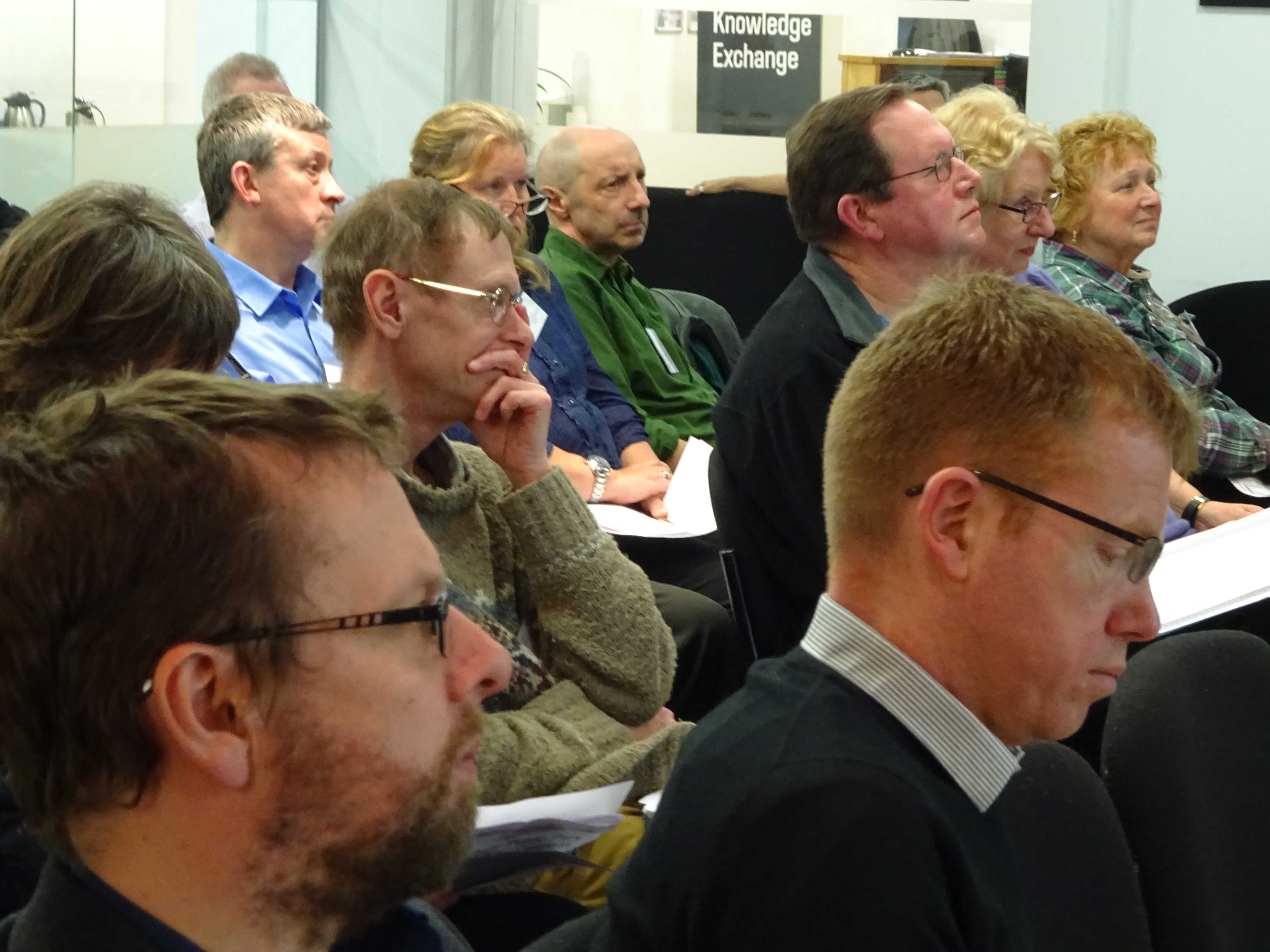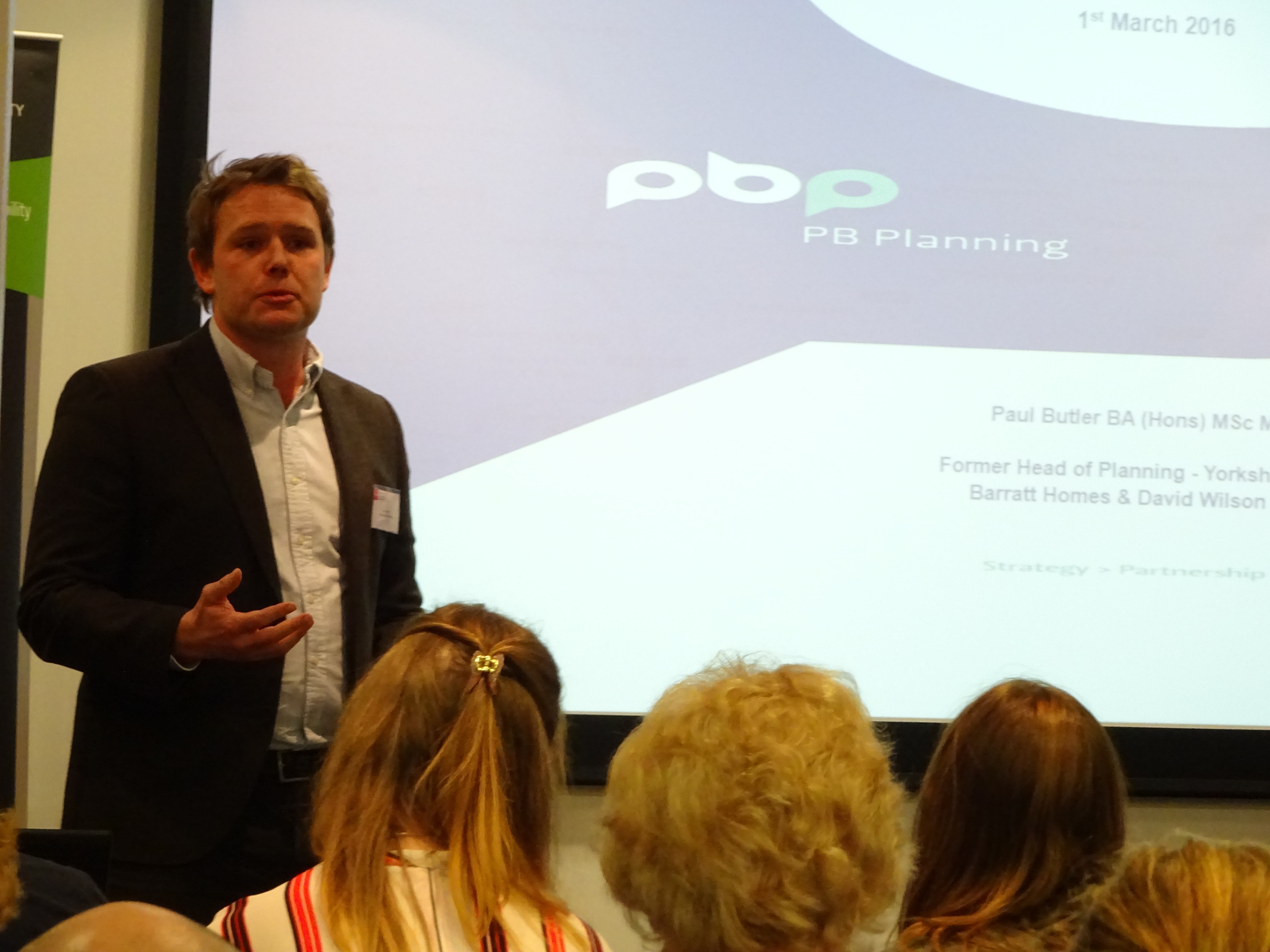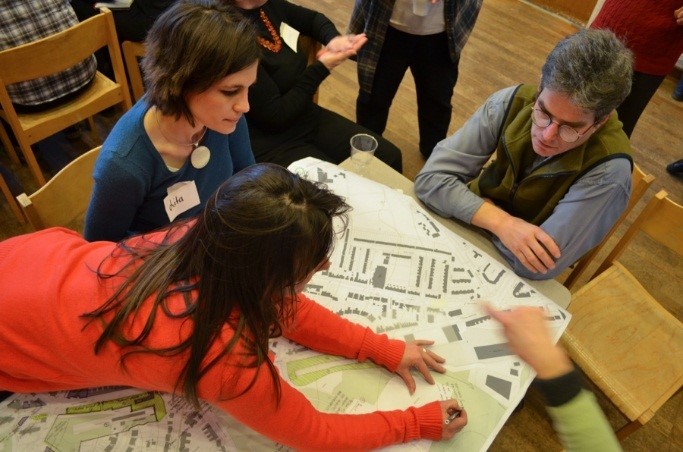At our recent conference in collaboration with RTPI Yorkshire we welcomed six fantastic speakers to discuss the latest developments in Neighbourhood planning. Opening the conference was Steve Hoey, Head of Neighbourhood Planning & Housing at Locality, who delivered a national overview of local planning uptake, what neighbourhood plans can achieve on the ground and why people should get involved.
Tag: Leeds Beckett University (page 3 of 4)
The winners of Leeds Beckett University’s annual RISE Awards, that celebrate research, innovation, sustainability and enterprise have been announced by the School of Built Environment and Engineering.
The RISE awards (#RISE2017 for the social media savvy!), organised by the Leeds Sustainability Institute were established in 2015 as a means of bringing together both industry and academia to highlight new sustainable initiatives, schemes, technologies and products being developed or in use today. Presented by Gaynor Barnes from ITV Calendar and sponsored by CITU UK, a leading low carbon homes developer, eighteen awards were handed out in front of an audience of over one hundred and twenty individuals at the Marriott hotel in Leeds last Thursday night. Winners came from a vast array of environments, specialisms and backgrounds with accolades awarded for best research, sustainable developments, social value, enterprise, collaboration and education and training amongst others. All entrants, highly commended and winners displayed the passion and dedication to do things better and to elevate the spaces around us to being fit for twenty-first century living.
At a recent Constructing Excellence breakfast event we held, we were particularly struck by a statistic from a recent McKinsey Global Institute (MGI) study which proposed that in terms of digitisation, the construction industry lags dramatically behind those in other classically undigitalised sectors and in fact ranks only above farming and agriculture. Having been heavily involved in promoting digital construction across the region and beyond we felt that in light of this statistic it was important to explore our impression of where the industry is and specifically where Yorkshire and Humber currently places in order to meet the demands of the future.
Screen shot from MyConsole presentation at Constructing Excellence breakfast event on 26th April 2017.
We at Constructing Excellence Yorkshire and Humber (CEYH), part of the Leeds Beckett University School of Built Environment and Engineering have been running digitally focussed events through our thinkBIM network for over five years now and have overseen a massive growth in digital uptake across the region. Originally set up as a network to promote the advancement of BIM (Building Information Modelling) our remit has broadened to highlight new technologies and digital processes and their current and future uses.
When we started, the events were definitely for the innovators and early adopters, particularly in larger companies with SMEs being a little unsure of dipping their toe in the water; early problems being the choices of software available, balancing the cost of adoption with business needs and lack of clarity in contractual BIM requirements – all issues which we have had to address through events and targeted 1:1 support. As the network has expanded though, so has the industry’s understanding of the benefits of digital adoption, and this along with the publishing of the Digital Built Britain strategy in 2015 has helped to demystify some of the processes and improved knowledge and uptake of digital tools and processes across the region.
Even in these early days of digital adoption we saw how local organisations were at the cutting edge of the technological innovation that was unfolding. Not always on the large and prestigious projects but on smaller schemes like the laser scanning of the Orangery in Wakefield by DLA Design which showed what was possible already. We also witnessed the great work done by BAM at First Direct Arena working with their designers, structural steelworkers and precast concrete manufacturers who collaborated together using coordinated models form each organisation to resolve issues with the design, create and more effective design and improve the outcomes for the site team. By working together the team delivered an innovative and award winning venue for the city of Leeds.
Federated model image submitted by A1L2B, a Carillion Morgan Sindall Joint Venture, as part of their winning entry in CEYH Awards 2015.
The region has also seen the digitisation of infrastructure schemes too. The award winning A1 Improvement scheme from Leeming to Barton, a Carillion Morgan Sindall Joint Venture demonstrated many new and innovative ways to use digital data to assist with stakeholder engagement as well as collecting real time digital quality records during the course of the works too. Over at Immingham, Costain used the combined, federated, model of their scheme to accurately and successfully plan a 76 hour possession over Christmas 2015 where the team jacked a 5000 tonne bridge into place under the busiest freight railway line in the UK. All this was achieved by creating a digital programme that was meticulously planned, checked and reviewed by the project team, Highways England and Network Rail.
Solius Group virtual reality demonstration at thinkBIM conference in April 2017
More recently the thinkBIM network has been able to lift the lid on the future with demonstrations of Augmented Realities and Virtual Realities. These technologies are actually starting to become widespread too as more and more businesses start to see ways to use gaming technology for customer engagement, construction rehearsals and health and safety briefings as well as for operations teams to better understand the assets that they are maintaining with a level of efficiency previously unheard of. #itsBIMupNorth not just a hashtag but proof that Yorkshire really is a centre of excellence for the digital delivery of projects.
But the key thing here is not the technology, but the people behind it. As Steve Jobs once said “Technology is nothing. What’s important is that you have a faith in people, that they’re basically good and smart, and if you give them tools, they’ll do wonderful things with them”. From a niche group of technically minded people the thinkBIM network has grown to reflect and support a much wider community focussed on working more efficiently and who adopt a whole lifecycle approach not just procuring data for the physical asset alone. And here-in lies the challenge going forward, ensuring the industry is constantly recruiting and upskilling the individuals and teams who are able to exploit the opportunity technology offers.
Let us know your thoughts of where the industry is and where it needs to be and where you see the future of digital technologies for construction.
Thursday 30th March 2017
AMRC Factory 2050, Sheffield – S9 1ZA
08:30 for registration, 09:00-10:30
Refreshments provided!
Factory 2050 is a smart factory and arguably the world’s most advanced production facility.
Completed in late 2015 it is a joint venture between the University of Sheffield and Boeing and has been a catalyst for future investment within South Yorkshire’s buoyant advanced manufacturing district.
It is the UK’s first totally reconfigurable, digital factory for collaborative research and provides a world class environment for robotics and automation, integrated large volume metrology, digitally assisted assembly and manufacturing informatics.
It was also a game changer project for Interserve within Yorkshire, their first project for the University of Sheffield and their first advanced manufacturing project within the region.
The project has been a huge success; it was delivered safely, on time and within budget whilst overcoming a number of challenges associated with a circular building and a logistically complex site.
The excellence of the outcomes achieved along with the collaborative approach adopted, recognised by the project being crowned the National Constructing Excellence ‘Building Project of the Year’ in 2016.
Please join us on Thursday 30th March at Factory 2050, where the Interserve project team will present a case study on the project and provide a tour of the facility.
To get involved join us at
AMCR Factory 2050, Sheffield S9 1ZA
Thursday 30th March 2017 08:30-10:30
Click here to book your place for this not to be missed event!
Planning and housing strategies are essential for economic growth in the Combined Authorities and delegates at the Leeds Planning Network event in February had the opportunity to study three different approaches.
Speakers from Greater Manchester Combined Authority, South Yorkshire and Leeds City Regions provided much needed insight into the impact on planning and housing strategies on the city devolution agenda. They were ably chaired by consultant and researcher Jane Kettle, and addressed an audience of around 50 practitioners. Identifying a choice of strategies, the three speakers shared a vision that links housing growth to rising prosperity.
Anne Morgan, Planning Strategy Manager for Greater Manchester set out the benefits and challenges of the Combined Authority. The ability to produce a Greater Manchester spatial framework has made it possible to identify strategic growth areas, and plan collectively and consistently across ten local government areas. The spatial framework is supported by Mayoral compulsory purchase powers, and benefits from the potential to create Mayoral development companies. It has enabled the authorities to identify priorities, not only for economic growth but for the enhancement of green infrastructure. But it has also entangled the Combined Authority in public controversy over the loss of green belt land as tough decisions on housing allocations are made.
You can look at Anne Morgan’s presentation here: Anne Morgan – GMSF Leeds .
While the route to becoming a Combined Authority has not been smooth in South Yorkshire, a collective approach to planning and housing has emerged from the bottom-up. A housing compact agreed between registered providers in South Yorkshire was hailed by Tony Stacy, chief executive of South Yorkshire Housing Association, a leap forward in co-operation and joint planning. The compact between local authorities and housing associations demonstrates a willingness to work collaboratively in meeting housing need. It has resulted in a joint bid for housing investment and plans to radically expand the number of new homes built. Housing – once excluded from the priorities of the city region – is now seen as a key part of the infrastructure of economic growth.
You can look at Tony Stacy’s presentation here: Tony Stacey – Devolution, housing and Planning
An infrastructure investment framework has enabled the West Yorkshire Combined Authority to co-ordinate strategic planning in the Leeds city region and neighbouring areas. Colin Blackburn, Head of Infrastructure, stressed the need for a shared approach to planning and placemaking. While political structures evolve slowly, it is co-operation between authorities on development frameworks, land acquisition, site selection that makes combination possible. Significant challenges to housing delivery persist, and the Government White Paper provided few solutions, but agreement on strategy and consistency in approach are key achievements for West Yorkshire authorities.
You can find Colin Blackburn’s presentation here: Colin Blackburn RTPI – Planning and Housing Under Devo
By Quintin Bradley
Book Here!
As I write this post we are now just under five days to go until we close for this year’s Constructing Excellence in Yorkshire and Humber awards and we are very excited to see what you have all been up to in the last 12 months. We are really heartened by the response of local companies so far and can’t wait to get stuck into the judging process and organising the rest of the evening. There is still time to get your entries in – follow the links below or visit our dedicated awards page here
Not just your average awards ceremony
Here at the CKE, we take the responsibility of providing the best possible platform to showcase your projects, organisations and individuals extremely seriously, which is why you will never see us run the same event twice! Just like our entrants we aim for our awards ceremony to represent the common themes of our awards in being innovative, collaborative and dynamic.
For instance, at last year’s awards we were the only region to run a selfie competition, which was so successful that it was adopted at the nationals. Not just an excuse to take silly pictures (although that is always welcome), the selfie competition helped to raise the profile of the awards across social media giving extra coverage to the companies involved. We will be running it again this year so don’t forget to bring those phones and snap away!
If you are still undecided, here are just three more reasons why our awards are different and how your business will benefit from being involved,
- Our dynamic team are all from construction/engineering backgrounds. With over twenty years combined industry experience, we know how to sell what the industry does best
- Our awards are an experience as well as a ceremony. Every year the team try to do something different on the night itself to ensure the event is memorable for all the right reasons and is a real reward for the individuals and teams who take part. With this year’s Swinging from the Rooftops theme, this year is no exception! We have a number of surprises planned for you on the night – we can’t wait for you to see them!
- Our added value with our relationships to the National Constructing Excellence network, Yorkshire and Humber Constructing Excellence Club, Leeds Beckett University, Leeds Sustainability Institute and our thinkBIM, Green Vision networks. Going forward there will be plenty of opportunities for our entrants to showcase their work at our breakfast and twilight seminars, our half day conferences and through site visits.
How to enter
Fully inclusive and completely free to enter, we welcome submissions from any organisations, companies &/or project teams involved in delivering building & civil engineering projects in our region over the last 12 months. With 13 categories to choose from we are sure there is one for you! The closing date for entries is 29th April 2016 and all the forms can be downloaded from the links below.
Integration & Collaborative Working
Leadership & People Development
We look forward to reading your entries!
With thanks to our sponsors
Planning practitioners, house-builders and community members debated the balance between environmental sustainability and development, at Leeds Planning Network’s Master Class on Tuesday 1 March.
Over fifty people took part in this cutting-edge twilight Master Class event which featured the latest research and critical comment on the impact of five years of neighbourhood planning. Many community groups from Leeds got the chance to engage with developers and with planning professionals to tackle the challenges of sustainable development.
There is a real buzz about these Master Class events that aim to get under the skin of the tough decisions about planning and housing and community. This is the second exceptional event in a new strand of academic enterprise led by Leeds Planning Network, a research cluster funded by the School of the Built Environment and Engineering and run through the Centre for Knowledge Exchange.
Prof Gavin Parker, from the School of Real Estate and Planning at University of Reading presented the latest research on neighbourhood planning to community groups. They also got key tips from independent examiner Alyson Linnegar, while Paul Butler, former head of planning at Barratt Homes Yorkshire promoted the benefits of house-building in promoting sustainable growth. This was an opportunity for communities to learn from professionals but to make their views known too in a lively exchange of knowledge and experience. Many of the community groups taking part were already benefiting from the assistance and support of planning lecturers at Leeds Beckett, and this Master Plan event will feed into Leeds Planning Networks series of workshops for neighbourhood planning groups.
The evening’s presentations are reproduced at the ISSU link below and a selection of audience tweets and images from the event can be viewed at the Storify link at the end of this press release.
The next Leeds Planning Network Master Class will be on the Future for Affordable Housing on Thursday 17 March where the President of the Chartered Institute of Housing, and chief executive of Incommunities, Bradford’s premier social housing provider, will speak, alongside development chiefs from Harrogate Borough Council, and Connect Housing, the West Yorkshire community housing association. Details at the following link.
Saturday 30th January 2016
10:00 to 13:00
Old Broadcasting House, Woodhouse Lane, Leeds Beckett University, Leeds, LS2 9EN
This second workshop gives neighbourhood planning groups in Leeds a chance to meet and work together to tackle the big issues. There will be short presentations and plenty of time for discussion and networking. Planning experts from Leeds Beckett University’s planning school will be on hand to provide advice and support
Speakers:
Boston Spa Neighbourhood Plan
a presentation by Jeff Newton & John Steel
What can and what can’t go in a neighbourhood plan’
advice from Bob Pritchard, planning solicitor from Eversheds
Discussion groups with planning advisors:
- How can a neighbourhood plan improve design in your area
- Looking at infrastructure issues in a neighbourhood plan
- Inner-city neighbourhood planning
Free and open to all members of neighbourhood planning groups!
After July’s hugely successful #ceyhawards , we are pleased to be returning from our summer break at the end of September to bring you our next set of ‘excellence’ breakfasts. This Autumn we will be facilitating a number of sessions exploring the different stages of the RIBA Plan of Work (PoW) through the lens of the key players involved.
First developed in 1963, the RIBA Plan of Work is the definitive UK model for the building design and construction process. The RIBA Plan of Work 2013 organises the process of briefing, designing, constructing, maintaining, operating and using building projects into a number of key stages, 0 through to 7 (8 stages in total).
Our first event in the series on 30th September will focus Stage 0 – Strategic Definition. We will open with CEYH Chair Tom Oulton who will deliver an overview of why the PoW empowers the client.This will be followed by Daving Hemming, Head of Estates for Leeds Beckett University, who will explain how the client benefits from identifying their requirements before the design process begins.
The role of the client and in particular the ‘intelligent’ client is cropping up more and more in discussions as we move towards a more collaborative working model and digitisation. How can we educate our clients and does the RIBA PoW help drive this? Are you are client wanting to understand more about your requirements and how they can be practically applied? Then come along on the 30th and join our discussion.
Subsequent breakfast events will explore the CE themes of BIM, Collaborative Working, Funding and Finance, Procurement and Asset Management with our event in October looking at Sustainability.
© 2024 Constructing Excellence Yorkshire & Humber
Theme by Anders Noren — Up ↑

